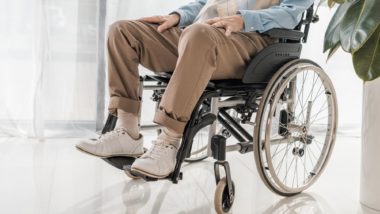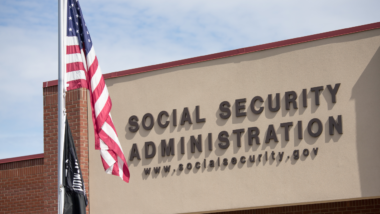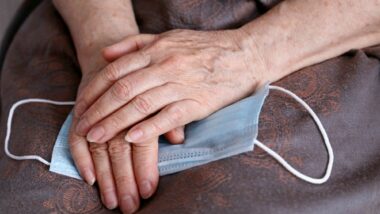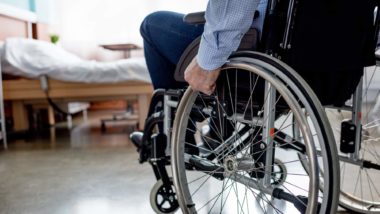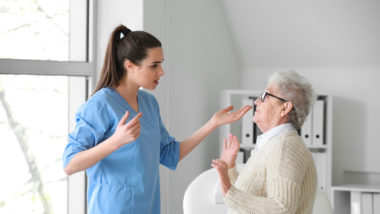Top Class Actions’s website and social media posts use affiliate links. If you make a purchase using such links, we may receive a commission, but it will not result in any additional charges to you. Please review our Affiliate Link Disclosure for more information.

What is Nursing Home Abuse?
Nursing home abuse can take the form of physical abuse, emotional abuse, sexual abuse, neglect, and other actions that jeopardize the well-being of nursing home residents. The National Center on Elder Abuse notes that around 10 percent of nursing home residents may experience some sort of abuse, neglect, or exploitation. However, because nursing home abuse often goes unreported, the actual numbers may be significantly higher.
What Are Signs of Nursing Home Abuse?
U.S. News notes that the warning signs of nursing home abuse may vary depending on the type of abuse. Some signs may be detectable in your loved one while other warning signs may be seen by watching caregivers. Some common warning signs may include:
- Emotional or physical changes: Family members becoming withdrawn or uncommunicative can be a sign of emotional abuse. Bruises, bedsores, skin tears, and other physical injuries may be a sign of physical abuse or neglect.
- Unanswered or deflected questions: If caretakers are unable to provide sufficient responses to family member inquiries, or if they are evasive and refuse to discuss care, this can be a sign that residents’ needs are not being prioritized.
- Inadequate staff: Low staffing is a serious problem. If there are not enough caretakers, they may be busy, rushed, frantic, and discordant, leading to low-quality care. Additionally, caretakers who provide the bare minimum in care can also contribute to neglect.
- High staff turnover rate: The unfortunate reality of high staff turnover can mean that staff is not being trained as well as they should and that no one has developed a close relationship with the residents. This can lead to compromised care.
- Loved ones avoiding certain providers: Family members avoiding certain staff can mean that that staff member is abusing them. Even if residents do not vocalize their concerns to their family members, nursing home leadership should be informed if an aversion is noticed.
- Unanswered phone calls and call lights: If family members visit a care facility and notice that phone calls and call lights are not being addressed, this may be an indicator that residents are not getting the attention and care they need. If call lights are not being followed up on for basic needs such as going to the bathroom, staff may not be promptly responding to serious situations like falls.
- Dehydration or malnourishment: Dehydration and malnourishment can mean that basic needs are not being met by nursing staff members. This can be a serious consequence of neglect that can make people seriously sick.
- Lack of improvements: If a care facility doesn’t seem to be making improvements and instead seems to only do the bare minimum, this can be an indicator that eldercare is suffering.
- A gut feeling: Even if family members can’t pinpoint a specific warning sign, a general feeling that something might be wrong could be a good indicator. These feelings, although they are abstract, can help family members be on the lookout for abuse.
Individuals who have witnessed these warning signs in a loved one’s care setting may want to investigate the issue and follow up with leadership at the care facility. If this doesn’t result in an improvement, family members can also contact the authorities or seek the help of a licensed nursing home neglect lawyer.
What is Being Done About Facility Understaffing?
According to a Mar. 6, 2019, article posted at prnewswire.com, inadequate staffing in nursing homes across the state of Illinois has contributed to the need for legislative intervention. This is because poor staff to resident ratios have led to situations of neglect, infections, and even the demise of patients.
Part of the motivation behind this legal intervention is the poor ratings assigned to nursing homes in the State in 2015 by the Centers for Medicaid and Medicare Services. Over a third of the elder facilities were determined to be of poor quality, according to their evaluation, and nearly 85 percent of state residents surveyed indicated a desire to intervene.
This is not a regional problem, as indicated by the report. AARP is working across the U.S. to improve the standards of staffing ratios in nursing homes and care for residents.
The legislation being introduced in the state of Illinois and perhaps other states in the future are threefold in nature. It empowers lawmakers to ensure that minimum staffing ratios of patient to caregiver are maintained at all times and that violations in care standards are not hidden from the view of the public. The third aspect of the law is to uphold safeguards with respect to medications that act on the brain and support patient’s rights when it comes to getting information that will help them make informed decisions about the use of certain drugs.
A secondary action being taken in Illinois is to support the families of elders that are taking it upon themselves to provide care for their loved ones at home. This gives such families a $1500 tax credit when they pay for daycare services for an elder, remodeling of their home to care for the same, or for care equipment and transportation to medical appointments.
In general, nursing home neglect lawsuits are filed individually by each plaintiff and are not class actions.
Do YOU have a legal claim? Fill out the form on this page now for a free, immediate, and confidential case evaluation. The attorneys who work with Top Class Actions will contact you if you qualify to let you know if an individual nursing home neglect lawsuit or class action lawsuit is best for you. Hurry — statutes of limitations may apply.
ATTORNEY ADVERTISING
Top Class Actions is a Proud Member of the American Bar Association
LEGAL INFORMATION IS NOT LEGAL ADVICE
Top Class Actions Legal Statement
©2008 – 2024 Top Class Actions® LLC
Various Trademarks held by their respective owners
This website is not intended for viewing or usage by European Union citizens.
Get Help – It’s Free
Join a Free Nursing Home Neglect Class Action Lawsuit Investigation
If you qualify, a nursing home lawyer will contact you to discuss the details of your potential case at no charge to you.
PLEASE NOTE: If you want to participate in this investigation, it is imperative that you reply to the law firm if they call or email you. Failing to do so may result in you not getting signed up as a client or getting you dropped as a client.
Oops! We could not locate your form.





